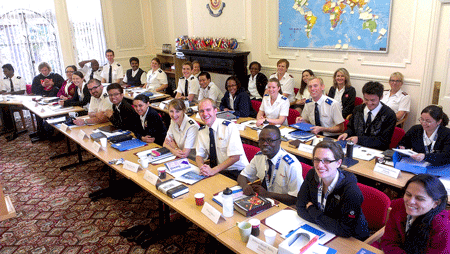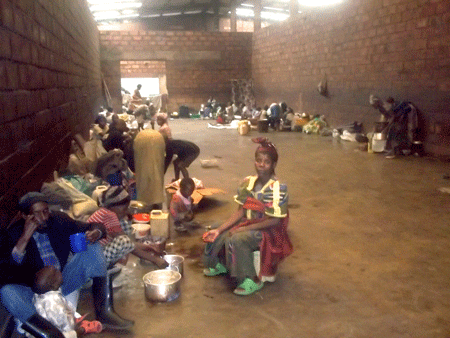By Robert Docter –
I stumbled again the other day.
Running–well–trotting.
Sidewalk–kneeburns, bruised thigh, skinned hands.
I’m continually amazed at how small things are that trip me up. A slab of concrete had lifted no more than three-fourths of an inch, and my left foot came down at just the wrong spot in front of it. I hit it and staggered four or five steps, trying to regain my balance– picking up speed with each step. Then, down I went.
Needless to say I was surprised to be face to face with gray concrete–again. I thought I’d learned a little the last time this happened, but here I was–once more not paying attention to details.
I was so angry I got up and kept running–blood pumping–deep gobs of oxygen– impulses taking over. My ego had been damaged considerably more than my knees and hands. I wanted to protect it–even from one of its worst critics–me. I started pondering how.
The blood running down my leg did not afford me the luxury of denial, so next–I started wondering whom I could blame. I tried displacement. This allowed me to shift my irresponsibility to some safer target. My experience with the human condition leads me to believe this is a fairly typical reaction. “It’s not my fault,” I said to myself.
Fortunately, I couldn’t find a handy object other than the raised sidewalk, and I’d already given it a swift kick. Then, too, not wanting to be anything like “typical” I shifted to a different kind of more productive questioning: how do I contribute to my own problem?
Now that’s a truly threatening question. I was off the concrete and huffing and puffing on an uphill stretch by this time. The blood must have been hitting my brain with more of the “right stuff.” It immediately hit me.
“Pick your feet up,” I said to myself. It was such a great idea I said it aloud, and some guy passing me at that exact moment replied: “I am.”
It’s true. When you go through life, you need to pick your feet up. If you don’t, you’re going to be stumbling all over the place. Foot dragging isn’t always defined literally. It happens when you fall into a careless pattern–when habit takes over–when you fail to pay close attention to the “details” of your life. And if you’re prone to scuffing your left foot, there’s going to be something out there to trip you up. It might only be three-fourths of an inch high, but it will bring you down. No significant struggle will rescue you from your folly.
So, what kinds of left foot problems do you have? In other words–how do you contribute to your own difficulties? Some people stick their left foot in their mouth. They’re not watching where their mouth is going–not paying attention to the words they choose–not getting their mind into the loop prior to sounding off–and k’blam–down they go. Some people seem to think their kids are made of wood–or that they’re too stupid to interpret behavior. These people do things, say things, cause things to happen which their kids pick up very quickly and from which they generalize. Kids are more skillful than adults in reading non-verbal behavior.
There’s another batch of people who seem to want to drag their “left-foot” problems with them all their life. They won’t give up that which does them damage. Stubborn. Often, without awareness, they have fixated at a level of development, and, unconsciously, they are unable to change. Some behavior seems cute at age six, but definitely strange at 36. We’re all stuck somewhere. Knowing this and wanting to grow will help us avoid behavior that might trip us up or brings us down.
Another “left-foot” problem comes from unforgiving resentment–often born out of hurt. The pain for these people must seem absolutely delicious. They stay in it a lifetime. They feel cheated or damaged or neglected or unloved or discounted or abandoned, and they won’t find a way to give it up. These feelings cause them to relate to others in a skewed manner–and they go through life looking at gray concrete. Forgiveness is the only way to get back into the race.
Got any “left foot” problems? Watch the details of your life, then get up and keep running.












